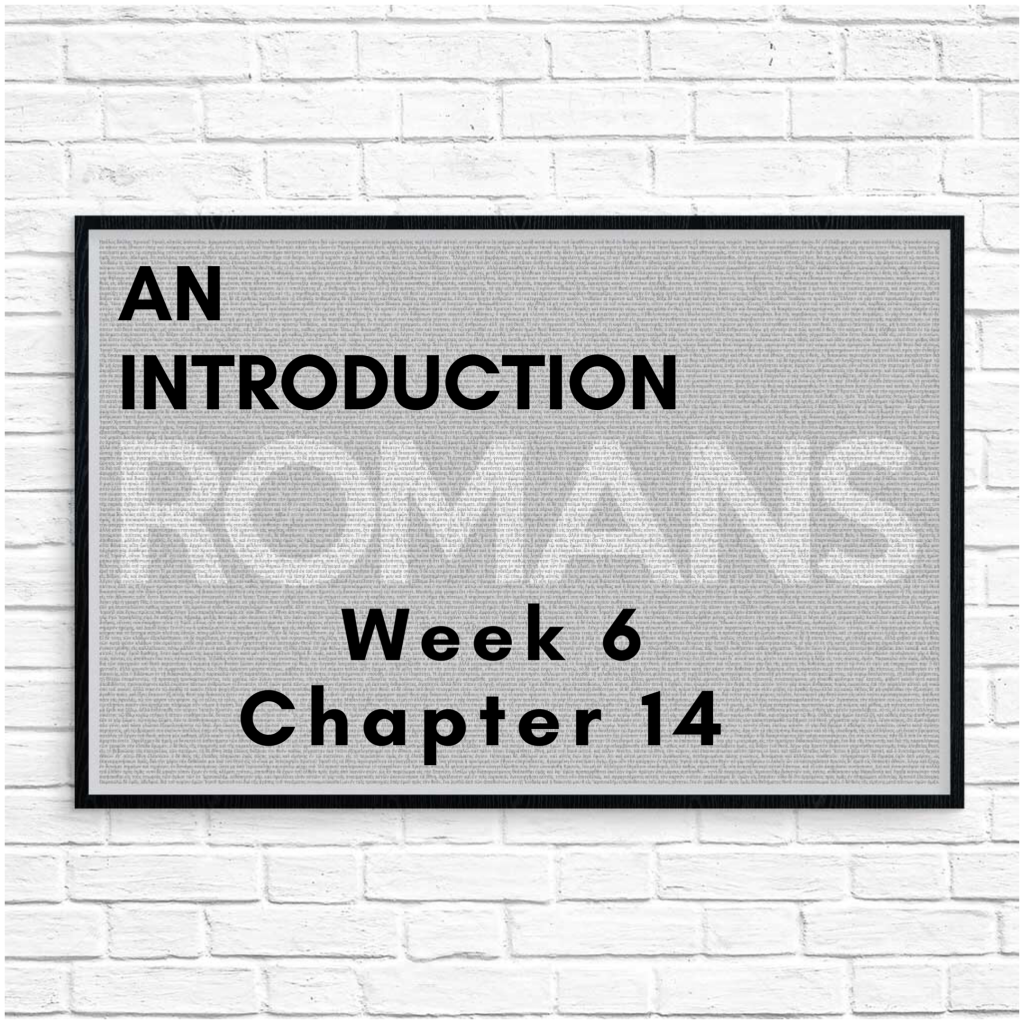Romans – Week 6 – Chapter 14
1 Accept the one whose faith is weak, without quarreling over disputable matters.
2 One person’s faith allows them to eat anything, but another, whose faith is weak, eats only vegetables.
3 The one who eats everything must not treat with contempt the one who does not, and the one who does not eat everything must not judge the one who does, for God has accepted them.
4 Who are you to judge someone else’s servant? To their own master, servants stand or fall. And they will stand, for the Lord is able to make them stand.
5 One person considers one day more sacred than another; another considers every day alike. Each of them should be fully convinced in their own mind.
6 Whoever regards one day as special does so to the Lord. Whoever eats meat does so to the Lord, for they give thanks to God; and whoever abstains does so to the Lord and gives thanks to God.
7 For none of us lives for ourselves alone, and none of us dies for ourselves alone.
8 If we live, we live for the Lord; and if we die, we die for the Lord. So, whether we live or die, we belong to the Lord.
9 For this very reason, Christ died and returned to life so that he might be the Lord of both the dead and the living.
10 You, then, why do you judge your brother or sister[a]? Or why do you treat them with contempt? For we will all stand before God’s judgment seat.
11 It is written: “‘As surely as I live,’ says the Lord, ‘every knee will bow before me; every tongue will acknowledge God.’”[b]
12 So then, each of us will give an account of ourselves to God.

- Paul is talking about “legalism” – A legalist is someone who has a set of specific extra-scriptural values that he imposes on others as a universal standard for pleasing God
- Paul is writing this to set straight the mindset of “laws or values” observed differently between the Jews or non-Jewish (Gentiles). Referencing restrictive diets that make no difference in pleasing the Lord.
- James 4:17 – “If anyone, then, knows the good they ought to do and doesn’t do it, it is sin for them.”
- A legalist can wear you out with their list of artificial standards. They often have a way of making everyone around them feel inferior if they don’t comply. Ironically, these weak-in-the-faith people often display themselves as strong Believers, when in fact the opposite is the case.
- We all either know or have known in the past someone we would refer to as a “legalist”. If they’re in this room, don’t stare.
- The first issue of legalism that Paul deals with is that of a vegetarian diet (for which there is no scriptural precedent). The one who observes the vegetarian diet exercises his own personal Christian liberty until he begins to use his practice as a test for spirituality in others; then he has become a “legalist” (aka “weak in the faith”). However, for those who prefer a vegetarian diet for themselves, but do not seek to use it as a test of spirituality in others, they are not guilty of legalism.
- In verse 7, Paul says “For none of us lives for ourselves alone, and none of us dies for ourselves alone.” In other words, the way I live my life has an impact on others. People are watching me. That’s why it is extremely important that I conduct my life in such a way that others will respect the God I serve.
13 So let’s stop condemning each other. Decide instead to live in such a way that you will not cause another believer to stumble and fall.
14 I know and am convinced on the authority of the Lord Jesus that no food, in and of itself, is wrong to eat. But if someone believes it is wrong, then for that person it is wrong.
15 And if another believer is distressed by what you eat, you are not acting in love if you eat it. Don’t let your eating ruin someone for whom Christ died.
16 Then you will not be criticized for doing something you believe is good.
17 For the Kingdom of God is not a matter of what we eat or drink, but of living a life of goodness and peace and joy in the Holy Spirit.
18 If you serve Christ with this attitude, you will please God, and others will approve of you, too.
19 So then, let us aim for harmony in the church and try to build each other up.
20 Don’t tear apart the work of God over what you eat. Remember, all foods are acceptable, but it is wrong to eat something if it makes another person stumble.
21 It is better not to eat meat or drink wine or do anything else if it might cause another believer to stumble.[a]
22 You may believe there’s nothing wrong with what you are doing, but keep it between yourself and God. Blessed are those who don’t feel guilty for doing something they have decided is right.
23 But if you have doubts about whether or not you should eat something, you are sinning if you go ahead and do it. For you are not following your convictions. If you do anything you believe is not right, you are sinning.

- Don’t injure the faith of another person
- Verse 14 in summation: It is very immature of me to flaunt my “rights” in front of a legalist. The legalist, being weak in faith, lacks clear scriptural understanding. However, the mature Believer with perspective on scriptural godliness will practice restraint in his Christian life so as not to be offensive to the legalist. Those Believers who disregard the feelings of the legalists are just as short sighted in their Christian walk as the legalists themselves.
- When you care enough about your testimony, you’ll limit your conduct. Paul writes on this issue in I Corinthians 8 and I Corinthians 10 where he says in 10:33, “Even as I please all men in all things, not seeking mine own profit, but the profit of many, that they may be saved.
- We all have rights. I mean, if I want to drink, I’m going to drink! If I want to look at naked women on my computer, no one is stopping me. Abortion? It’s MY body! But Verse 21-23 says it’s a matter of surrendering your rights for the glory of God and references back to James 4:17
- Ever see the selflessness of a missionary- whether overseas or someone like Sam putting post-it notes on church doors? When you see that willingness to sacrifice one’s life for Christ, how can we possibly consider it too much for God to ask us to limit our Christian liberty a little bit so as not to cause others to stumble?